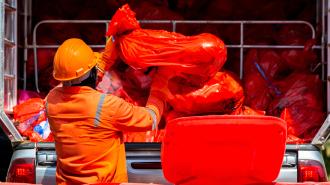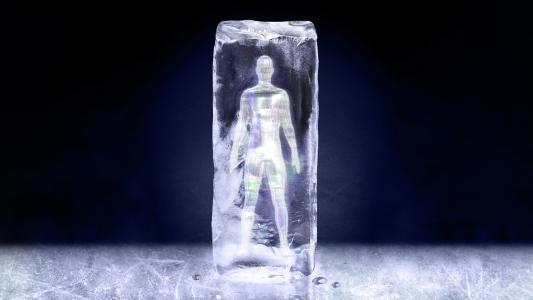A new hydrogel for vaccines and cancer therapies could stop vaccine waste — and ensure everyone, everywhere has access to life-saving medicines when they need them.
The challenge: Vaccines teach your immune system to recognize a specific virus or bacteria. It will quickly jump into action when it encounters the germ in the future, preventing an infection from taking hold or running out of control.
A broken cold chain is a major reason why 50% of vaccines are wasted annually.
Many vaccines — including several used to prevent COVID-19, such as Novavax’s shot — use a protein taken from a virus, or a weakened or killed version of the pathogen, for this training. Because temperatures outside of 2-8 C (35-45 F) degrade those components, vaccines often must be shipped along a refrigerated supply chain.
Maintaining this “cold chain” can be difficult, particularly in developing nations and rural areas where reliable electricity and refrigerated trucks can be hard to come by — a broken cold chain is a major reason why 50% of vaccines are wasted annually, according to the WHO.
What’s new? Scientists from ETH Zurich and Colorado-based startup Nanoly Bioscience have now developed a hydrogel that could help minimize this vaccine waste.
It works by wrapping around the heat-sensitive components in a vaccine — this allows them to remain viable at room temperature or higher: 25-65 C (75-150 F). When it’s time to use the vaccine, a sugar solution is added, and the hydrogel dissolves in about an hour.
The limitations: The hydrogel improved the thermal stability of whole viruses, protein-based vaccines, and other large, complex molecules used in medical treatments. However, it didn’t prevent them from losing some of their efficacy over time when stored at room temperature — cooler is still better.
Still, if the hydrogel could even prevent some vaccine waste, it could be a big improvement over the status quo — but getting it approved by the FDA for human trials might be difficult.
The gel wraps around a vaccine’s heat-sensitive components, allowing them to remain viable at higher temperatures.
“Preliminary toxicology data suggest that the gel components are safe for in vivo use,” the authors write. “However, one of the gel components could be found to be unsuitable for clinical translation.”
They believe this limitation could be overcome with additional research, but a more immediate use of the hydrogel could be the protection of heat-sensitive molecules, such as the enzymes used in cancer research, during transportation.
Beyond the gel: While ETH Zurich continues to develop its hydrogel, others are exploring their own ideas for preventing vaccine waste, by delivering vaccines via microneedle patches or freeze-drying them, for example.
Smart coffee mug maker Ember and Cardinal Health are developing a shipping container they believe could make the cold chain more reliable and stable, while some scientists are developing “warm” vaccines that remain stable without any refrigeration at all.
We’d love to hear from you! If you have a comment about this article or if you have a tip for a future Freethink story, please email us at [email protected].






